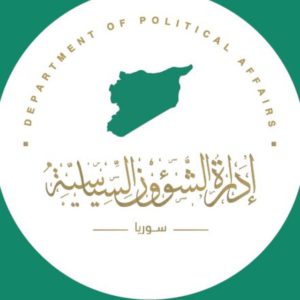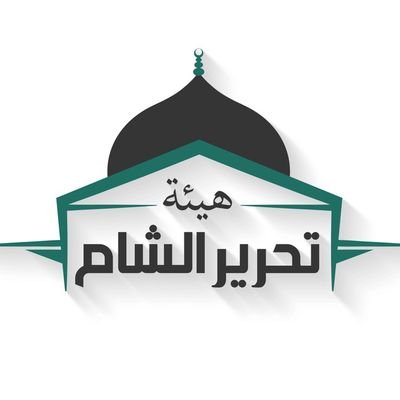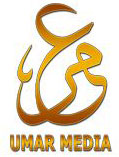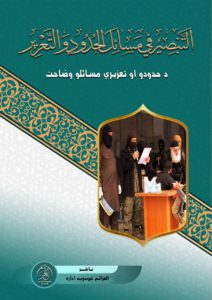
Arabic:
English:
__________________
Source: Telegram
To inquire about a translation for this statement for a fee email: [email protected]

Arabic:
English:
__________________
Source: Telegram
To inquire about a translation for this statement for a fee email: [email protected]

إخواني المجاهدين.. إخواني الدعاة.. إخواني طلبة العلم.. إخواني المشايخ.. إخواني الإعلاميين.. إخواني المثقفين.. إخواني الأكاديميين.. إخواني جميعاً -موافقين ومخالفين-؛ واجبُ الوقت، والأولويةُ القصوى: هي استمرار الصف واحداً مرصوصاً متيناً، والعملُ على ذلك والأخذُ بأسبابه، والحثُ على ذلك؛ دون ثغراتٍ، ولا بُنيّات طريق، ولا التفاتٍ يمنةً ويسرةً.. نحن بشر، نصيب ونخطئ، ونتوخى في اجتهادنا أن يكون صائباً، فإن بدا لبعضكم غيرُ ذلك؛ – فربما يكون مخطئاً وغيره هو المصيب. – وربما يكون لكلا الاجتهادين اعتبارٌ ووجهٌ مقبول. – وربما نخطئ نحن في الاجتهاد. فأحسنوا الظن على أية حال، واعلموا أن الصمت منجاةٌ، وأن نصيحة السرّ أرجى.. وإذا اعتبرتم أن ثَمّةَ عثْرةً في خطوةٍ، أو لفظةٍ، أو جملةٍ، فأقيلوا عثرة إخوانكم، ولا تلفتونا عن أولويات المرحلة، وحساسية ظرفها؛ – فبقاء الصف مرصوصاً. – واستمرار الزخم العسكري في المكان الصحيح. – والعمل على شرح أنفسنا ومبادئ ثورتنا -قولاً وعملاً- للمناطق الواسعة المحررة حديثاً، بما تحويه من أطيافٍ شتى؛ عرقيةٍ ودينيةٍ ومذهبية. – والإسراع في ترتيب إدارة هذه المناطق، وتقديم الخدمات لأهلنا فيها. – والعمل الدؤوب داخلياً وخارجياً على؛ التحييد للبعض، والتطمين لآخرين، مع شرحنا لأنفسنا كذلك، وتبيان كيفية التعاطي مع ملف الطوائف والأقليات الحسّاس. – والنظر -مع المراعاة- لكل جوانب هذه المعركة التاريخية الضخمة؛ العسكرية والسياسية والاجتماعية، والداخلية والخارجية. هي أهم -لا كلّ- أولويات هذه المرحلة. وأما ما سوى ذلك: فيمكن تأجيله، أو التغاضي عنه، أو تصحيحه، أو التنبيه عليه -سراً- بما لا يؤدي لفتنةٍ وتشويش. والله يتولانا وإياكم، ويهدينا جميعاً سواء السبيل، ونسأله سبحانه أن يتمّ علينا الفتح والنصر، وأن يجعلنا أهلاً لحمل الأمانة، وأن يستعملنا ولا يستبدلنا، وأن يتحفنا -من لدنه- بالرضى والقبول، إنه أكرم مسؤول. والحمد لله رب العالمين.
_______________
Source: Telegram
To inquire about a translation for this release for a fee email: [email protected]

Click the following link for a safe PDF copy: Teḥrīk-ī-Ṭālibān Pākistān — Another Jihādī Group Joined the Teḥrīk-ī-Ṭālibān Pākistān
_______________
Source: Telegram

Click the following link for a safe PDF copy: Hay’at Taḥrīr al-Shām — “The Military Wing- Condolences For the Martyr Abū ‘Abd Allah Aghā
_______________
Source: Telegram
To inquire about a translation for this statement for a fee email: [email protected]

Click the following link for a safe PDF copy: Teḥrīk-ī-Ṭālibān Pākistān — Declaration Regarding Independence Day (Resolution of Pakistan)!
_________________
Source: Telegram
Click the following link for a safe PDF copy: A Group of Egyptian Mujāhidīn Emigrants
________________
Source: Telegram
To inquire about a translation for this statement for a fee email: [email protected]

Click the following link for a safe PDF copy: Teḥrīk-ī-Ṭālibān Pākistān — Expressing Its Condolences On the Martyrdom of Sa’īd Muftī ‘Īd Muḥammad
_________________
Source: Telegram

Click the following link for a safe PDF copy: Teḥrīk-ī-Ṭālibān Pākistān — Further Addition of Two Districts In Dera Ismail Khan Province
_______________
Source: Telegram

Click the following link for a safe PDF copy: Teḥrīk-ī-Ṭālibān Pākistān — A Group From Dera Ismail Khan Province Joined
_______________
Source: Telegram

Click the following link for a safe PDF copy: The Islamic State’s Wilāyat Khurāsān — Clarification On Ḥudūd and Ta’azīr Punishment Issues
________________
Source: RocketChat
To inquire about a translation for this article for a fee email: [email protected]